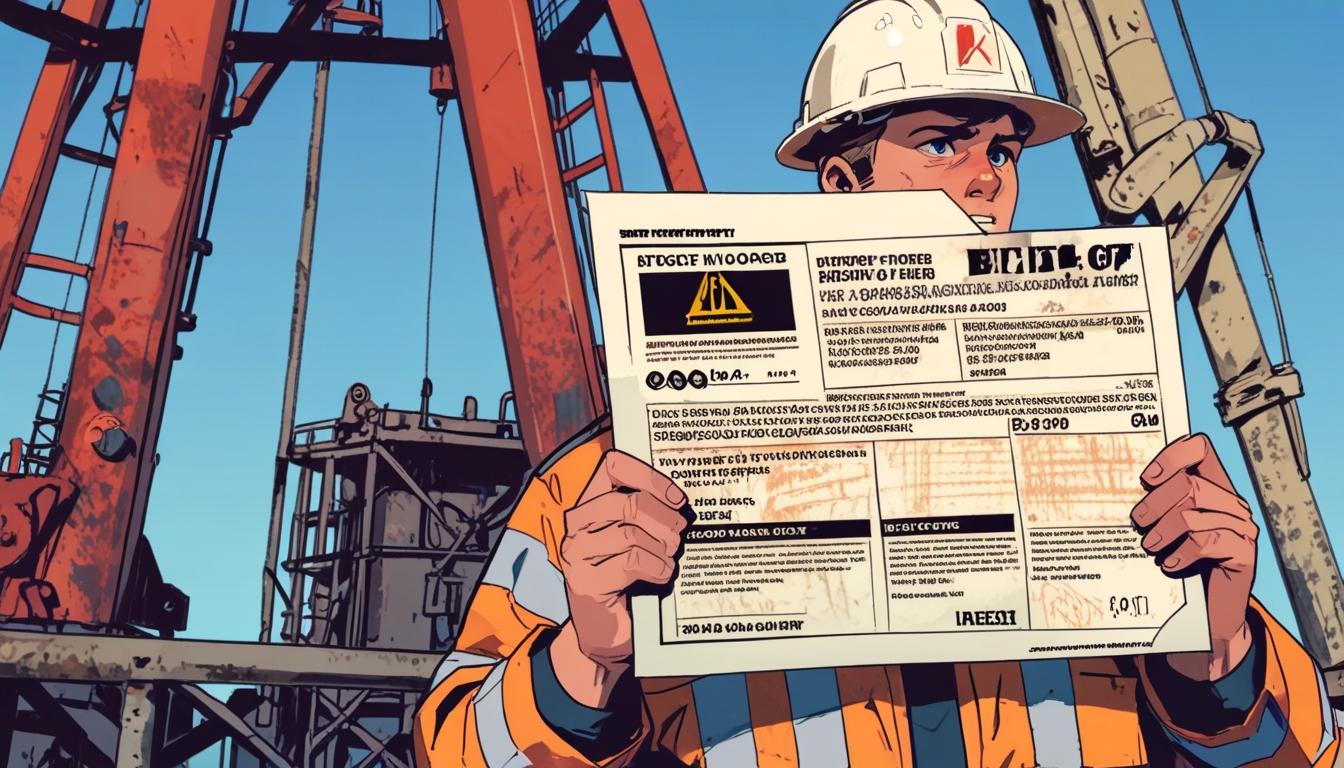A recent wave of job losses at Harbour Energy, a key player in the UK oil and gas sector, has sparked significant concern among local workers and industry stakeholders, with many attributing the cuts to the government's Energy Profits Levy (EPL). This controversial tax, which has risen to 78% on profits from oil and gas extraction, is seen as a major factor in the decision to lay off 250 employees in Aberdeen, adding to a total of 600 redundancies within the last two years.
Kerry Smyth, a technical support manager at Harbour Energy, expressed the emotional toll these job losses are taking on employees, stating, “People are sad, they’re worried, but no one is surprised.” Her comments came during an emergency press conference convened by the Aberdeen & Grampian Chamber of Commerce. Smyth emphasised the need for government intervention, arguing that the current taxation policy not only threatens jobs but also undermines the skill set essential for a successful energy transition. “The government needs to act now before we lose the skill set we need to deliver the energy transition,” she said, highlighting a persistent fear in the industry that highly skilled engineers are being pushed out of the sector at a critical time.
The ramifications of these layoffs extend beyond individual livelihoods. Donna Hutchison, chief executive of Aberdeen Cyrenians, warned that the impacts would ripple through the community, attributing potential increases in child poverty and domestic violence directly to economic instability resulting from job losses. “This is not just numbers on a spreadsheet; we really need to remember the humanity in this,” she pointed out, underscoring the social implications of the government’s policies on the energy sector.
Russell Borthwick, chief executive of Aberdeen & Grampian Chamber of Commerce, condemned the government’s handling of the situation, asserting that the UK is effectively deindustrialising its energy capital. He called for urgent adjustments to regulatory frameworks that could safeguard existing jobs and stimulate new opportunities. His concerns echo sentiments held widely throughout the region, as many fear that a lack of supportive measures will irrevocably damage local industries.
Financial repercussions are also evident, as Harbour Energy reported a reduction in profit, with net earnings plummeting to $32 million for 2023 from a pre-tax profit of $597 million. This sharp decline has been attributed to both the windfall tax and decreasing natural gas prices, indicating a precarious financial landscape. The company aims to adapt by exploring international opportunities, yet this strategy raises questions about the long-term viability of the UK’s energy sector in the face of escalating taxation and dwindling investment.
The government insists that the EPL is a necessary tool to bolster energy security amid a cost of living crisis, extended through to March 2028. However, public opinion appears divided. Recent polling data revealed that 68% of voters support using domestic oil and gas to meet energy demands, while only 27% believe the windfall tax has effectively lowered bills. Many view the tax as not only ineffective but also detrimental to a sector they rely upon.
The sentiment among industry leaders and workers alike underscores the urgent need for a reconsideration of the UK's energy taxation policy. As voices across the region call for reform, it is clear that the future of Harbour Energy, and the wider energy sector in the UK, hinges on a government willing to engage with the realities facing its workforce and industries at large.
Reference Map
- Paragraphs 1, 2: Source 1
- Paragraph 3: Source 1
- Paragraph 4: Source 1
- Paragraph 5: Source 2, Source 4
- Paragraph 6: Source 3, Source 5
- Paragraph 7: Source 6
- Paragraph 8: Source 5
- Paragraph 9: Source 7
Source: Noah Wire Services
